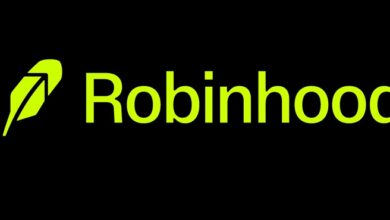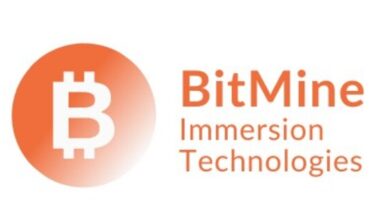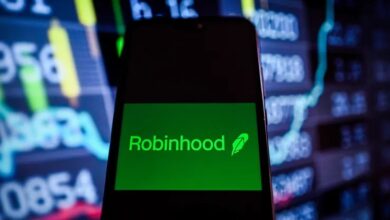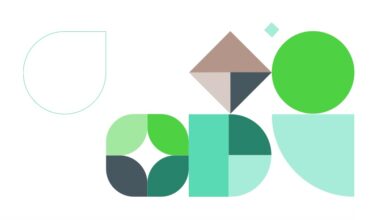Now that everything can be tokenized, banks are taking notice

There is an estimated $256 trillion worth of assets in existence. These include gold, oil, stocks, and real estate, among other things, which people are investing in all around the world. Notably, though, many of these assets are still illiquid, physically difficult to subdivide or transfer, and are transacted via a paper trail. Today, how people see and trade these assets is becoming outdated as a new form of managing assets takes shape.
With the advent of the blockchain, asset ownership is slowly beginning to move from analog to digital. Over the last year, the launch of countless initial coin offerings (ICOs) have proven how successful owning something on the blockchain can be. It has also shown that almost anything can be placed on the blockchain while everything of value can be tokenized; material items including homes, but also immaterial things such as knowledge, genetic data, and ideas.
It’s worth pointing out, however, that not everything can be placed on the blockchain. Last year, it was reported that tea, juice, and vape companies had added the word blockchain to their names in a bid to profit from the Bitcoin craze. Whereas, some of the most bizarre cryptocurrencies have since disappeared because they were either too niche or scams.
Yet banks are steadily beginning to take notice of this, which could see the banking sector undergo a disruptive change. Consequently, this could either mean the industry falls behind or is able to leverage the technology for it and its customers’ advantage.
What is tokenization?
Tokenization is the process of converting rights to an asset into a digital token on a blockchain.
With the idea of tokenization gaining popularity, financial institutions may see themselves turning their attention to this market as they figure out how they can manage assets via tokenization.
Not only that, but according to Julia Krauwer, an innovation specialist at Dutch bank ABN AMRO, the biggest promise of tokenization lies in the increased liquidity of assets. Assets that are difficult or expensive to trade, can be turned into easily tradable units.
“In addition, blockchain-based tokens can be divided into smaller pieces (divisibility) and allow for co-ownership of assets that would not be interesting or obtainable for individual market parties,” Krauwer says. “Tokens furthermore provide the opportunity to add any type of data that can help potential buyers make their decision.”
With tokenization already providing niche propositions for the trading of an array of assets such as real estate and personal data, the idea of tokenization in a broader sense could impact the way individuals manage their underused assets. It is because of this that Krauwer questions why banks can’t help their clients get the most out of their assets. “Not only the money in their bank account, but also an underused car, a house already paid off, or data generated through a website.”
What do banks need to do?
For the financial sector, it’s no longer a case of simply sitting on the sidelines and expecting no impact from the rise of the token economy. In order to remain relevant, action needs to be taken to explore this phenomenon further.
The key, according to Krauwer, is to further shape this future vision and learn how individuals can benefit from such a proposition. Even though the realization of a bank managing customers’ immaterial assets may still be far away, it’s not science fiction either, she states.
“The past couple of years, individuals have become more and more empowered to get the most out of their assets,” Krauwer added. “Whether you make extra money by renting out your house through Airbnb or get free clothing by promoting a brand through your Instagram account, there’s no denying that a whole new economy has emerged with significantly lower entry barriers than in the pre-platform era.”
She goes on to say that this is only the beginning, with the decentralized nature of the blockchain resulting in more empowered individuals. One example is social network Earn.com, which allows its members to earn tokens whenever they respond to a message from a fellow community member.
Yet, with an array of opportunities coming to the fore, a solution may be called upon that enables a person to get the most out of their assets with the least amount of friction involved that still maintains a person’s privacy. Krauwer states: “Considering the traditional role of a bank as a guardian of your valuables, this doesn’t sound like an unrealistic scenario.”
In order for banks to leverage this technology, they need to determine the opportunities and ascertain what risks may be involved.
Is a tokenized world becoming the norm?
Research from Fabric Ventures, a venture capital fund, and TokenData, a cryptocurrency data provider, showed in their ‘State of the Token Market’ report that startups and projects raised more than $5.6 billion in ICOs in 2017. This is compared to $1 billion through traditional venture funding in blockchain startups in the same time or the $240 million raised by token sales in 2016.
From the figures above, the past year has highlighted how pretty much anything can be put on the blockchain as a way of raising capital. But as it provides access to greater liquidity to investors rather than a conventional equity investment, it’s also demonstrating how a tokenized world is steadily being seen as the norm.
As Krauwer states, though, for an actual token economy to emerge, buyers would need insight in what they buy. “Token owners would need to know how they can keep track of the underlying asset. In addition, they would need a way to store their tokens and trade them with others.”
Not only that, but sellers would benefit from such a platform that would capture their assets in a token and connect them with possible buyers. Additionally, providing some type of quality assurance on top of the tokens would help too.
In Krauwer’s opinion, these are challenges that provide new opportunities for banks: “Could we help clients of any sort tokenize their assets, or to rate them? Could we help buyers with token insight and monitoring? Could we help token owners by means of safekeeping and trading services?”
While it’s uncertain whether a token economy will become the new standard, the opportunities involved may become too exciting for banks to ignore.





